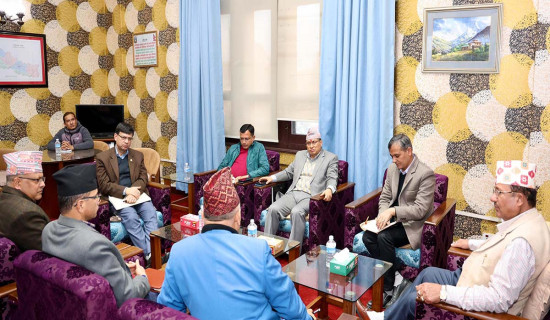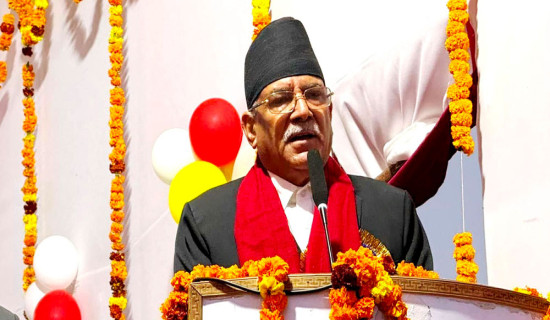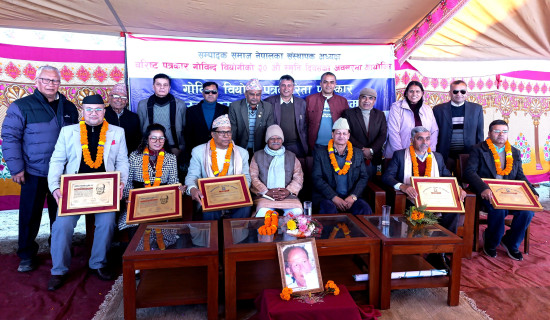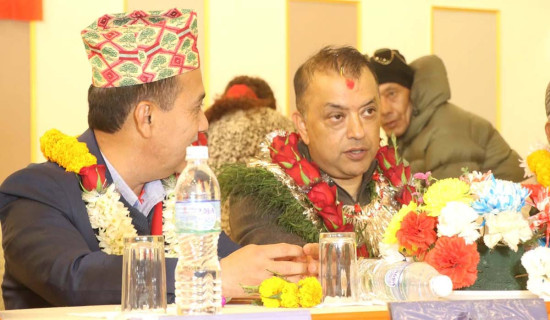- Sunday, 18 January 2026
Support Rural Libraries
Britti Aryal
In the remote villages of Nepal, modest libraries often serve as the sole source of education and information for their residents. These libraries are invaluable to many rural families, providing access to books and learning materials. They play a crucial role in the community by offering educational programmes, digital access, and community events, bridging the gap between isolated areas and broader educational opportunities. By fostering a love for reading and supporting lifelong learning, rural libraries play a pivotal role in enhancing community development and enriching the lives of their residents. However, these institutions face severe challenges. Many rural libraries struggle to meet the demands of their communities due to limited resources and systemic issues.
Rural libraries often grapple with a host of challenges of having too few up-to-date books, journals, and educational materials, making it hard for the libraries to meet their patron's needs. The libraries also don't have enough computers and internet access. This makes it tough for readers to conduct research and learn online. Lack of resources critically impair rural library operations by restricting their ability to invest in essential services. Limited funds often result in outdated collections and a lack of modern technology. Insufficient reinvestment in library infrastructure and resources leads to a decline in service quality and effectiveness.
When funds are not allocated for upgrading facilities, expanding collections, or acquiring new technology, libraries become less relevant to their users. With constrained budgets, the library's role as a vital community resource is compromised, impacting its ability to support education, literacy, and access to information. Likewise, the shortage of qualified and trained library staff also significantly undermines service quality in rural libraries. Without skilled professionals, libraries struggle to offer effective assistance and run programmes efficiently. This lack of expertise can lead to poor practices, delayed services, inadequate programme implementation, and inefficient handling of library resources.
Without programmes, users miss out on opportunities to enhance their knowledge and acquire new skills which also restricts the library’s role in supporting lifelong learning and personal development, reducing its effectiveness as a community resource. Some libraries are even restricted with the services limiting their role and impact within the community. As a result, users may receive less support and fewer opportunities in a world that is becoming more digital and advanced. Additionally, rural libraries struggle with the challenges of low community engagement and cultural constraints, reducing their perceived value and effectiveness. Limited awareness of library services leads to underuse and missed opportunities for educational and cultural enrichment.
Similarly, cultural barriers in some communities can hinder library use. These obstacles can limit the library’s effectiveness in serving all community members. As a result, the library may struggle to fulfill its role as a community hub and fail to make a meaningful impact on local development and learning. It is vital to proactively address the challenges by implementing strategic measures. To enrich their collections and technological resources, libraries can explore various funding avenues, including grant applications, community fundraising events, and partnerships with local businesses and organisations. By investing in staff training and professional development programmes, libraries can enhance the quality of service and administrative efficiency. Additionally, boosting community engagement through outreach events, local media promotion, and partnerships with community leaders can help overcome cultural barriers.
Furthermore, libraries should prioritise technological upgrades by acquiring modern digital tools, expanding internet access, and ensuring regular updates to materials. Stakeholders including policymakers, community members, and library supporters must also come together to advocate for increased funding, invest in modern resources, enhance staff training, and promote community engagement.
















